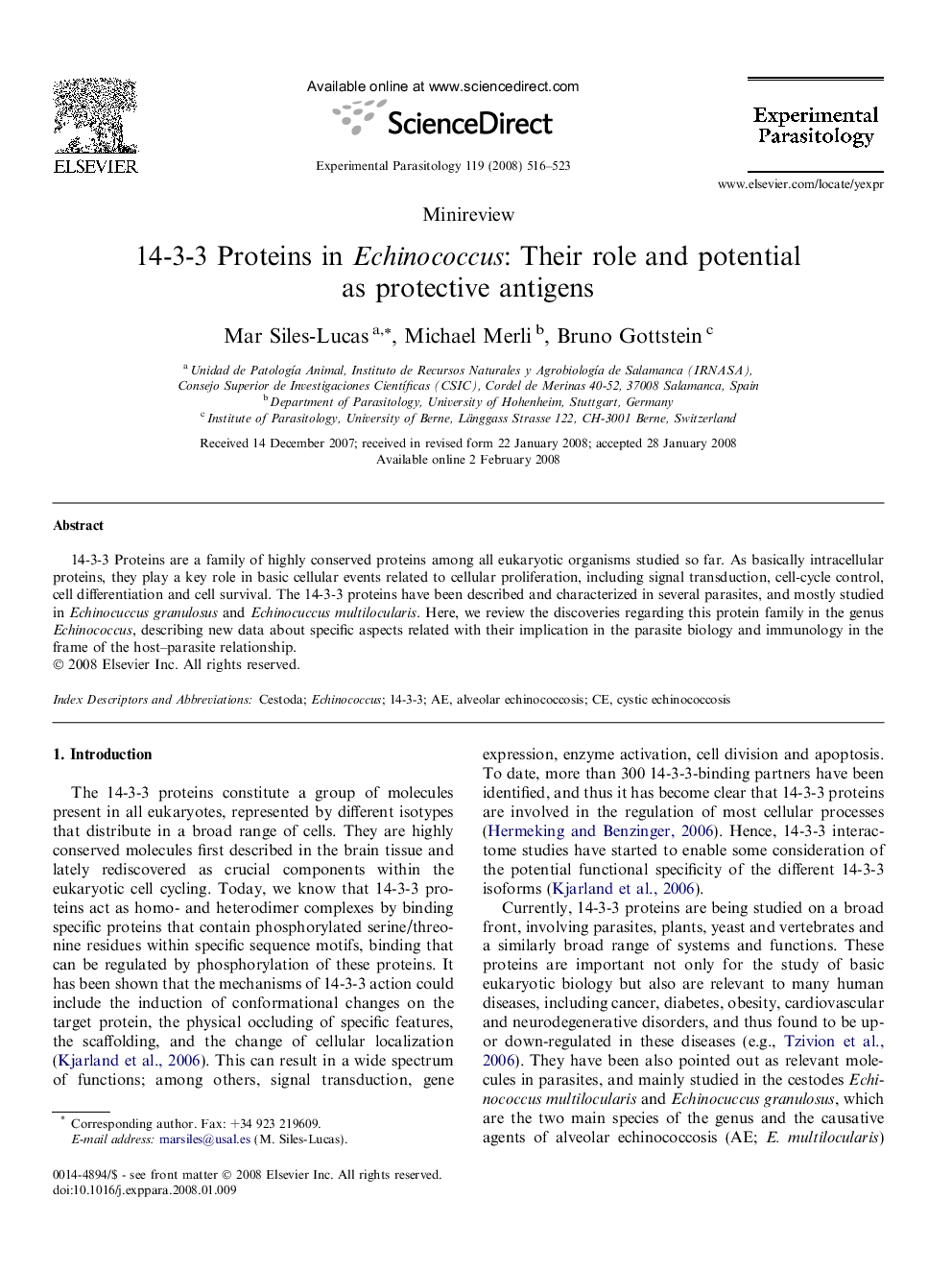| Article ID | Journal | Published Year | Pages | File Type |
|---|---|---|---|---|
| 4371582 | Experimental Parasitology | 2008 | 8 Pages |
Abstract
14-3-3 Proteins are a family of highly conserved proteins among all eukaryotic organisms studied so far. As basically intracellular proteins, they play a key role in basic cellular events related to cellular proliferation, including signal transduction, cell-cycle control, cell differentiation and cell survival. The 14-3-3 proteins have been described and characterized in several parasites, and mostly studied in Echinocuccus granulosus and Echinocuccus multilocularis. Here, we review the discoveries regarding this protein family in the genus Echinococcus, describing new data about specific aspects related with their implication in the parasite biology and immunology in the frame of the host-parasite relationship.
Related Topics
Life Sciences
Immunology and Microbiology
Parasitology
Authors
Mar Siles-Lucas, Michael Merli, Bruno Gottstein,
